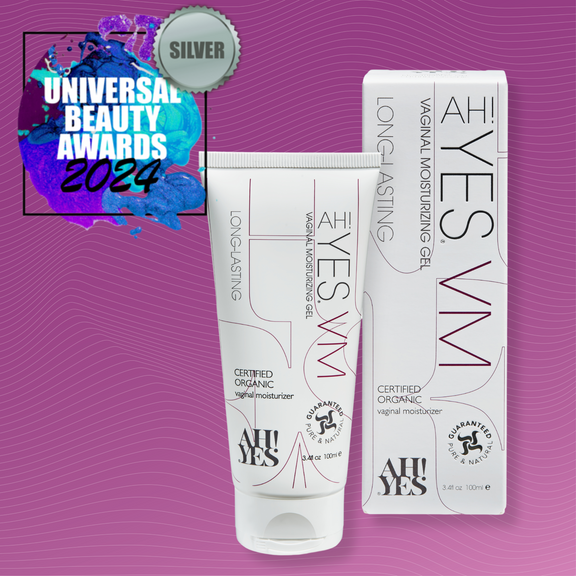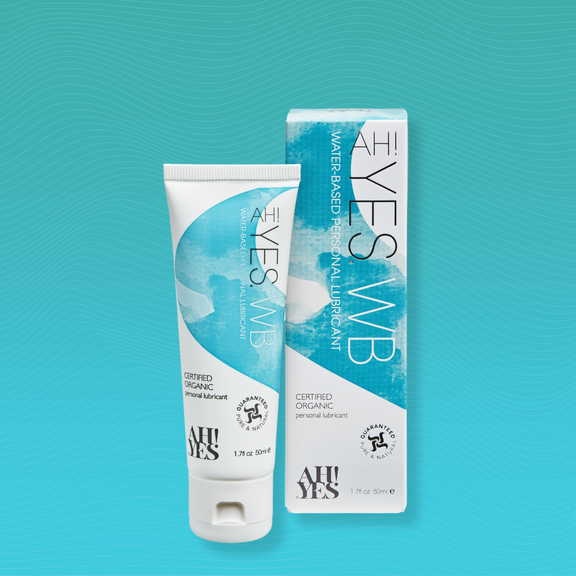Tips on how to ease vaginal dryness from breastfeeding
During pregnancy, your body goes through a lot of changes, and many effects continue after you’ve given birth.
Postpartum dryness is a common condition, particularly among those who are breastfeeding [1]. In fact, a study of 832 postpartum women revealed that 43% reported that they had vaginal dryness 6 months after giving birth [2].
Can breastfeeding cause vaginal dryness?
As well as pregnancy, breastfeeding can also cause vaginal dryness. This is due to a shift in hormones and can occur both internally and externally [3].
When you’re pregnant, your oestrogen and progesterone levels increase significantly. As a result, once you’ve given birth and delivered the placenta [4], they drop quickly, usually returning to pre-pregnancy levels within 24 hours.
When you’re breastfeeding, oestrogen levels drop even further because the hormone can impact milk production [5]. Oestrogen is essential for keeping vaginal tissue health, maintaining its normal lubrication, elasticity and acidity levels. So, when oestrogen levels drop, the lining of the vagina becomes thinner and less elastic, and produces less lubrication [6].
Breastfeeding actually mimics the menopause, because the production of the milk-producing hormone prolactin temporarily blocks oestrogen production [7]. This means that oestrogen levels are lower in breastfeeding mothers than those who don’t breastfeed, increasing the likelihood and severity of vaginal dryness [8].

Tips to ease vaginal dryness during breastfeeding
There are a number of ways you can help ease the discomfort caused by vaginal dryness until your oestrogen levels return to normal:
Lubricant
When you start having sex again, if your vaginal dryness is causing pain, you can use a lubricant to help make the experience more comfortable and enjoyable [9]. Water-based lubricants are particularly effective for adding moisture to the vaginal lining [10].
Vaginal moisturisers
Applying a vaginal moisturiser two to three times per week can help resolve vaginal dryness while breastfeeding [11]. They can last up to three days and they don’t need to be applied immediately before sex. Shop AH! YES VM, our all-natural Vaginal Moisturiser, here.
Oestrogen cream
Some women opt to use a topical oestrogen cream to help prevent vaginal dryness while they are breastfeeding. This is safe to do while feeding, but please speak to your GP for further advice [12].
Stay hydrated
There are plenty of reasons to stay hydrated but drinking plenty of fluids can also help if you’re experiencing vaginal dryness due to breastfeeding or pregnancy. So make sure you drink at least 2 litres of water each day.
Avoid douching and hygiene products
Douching can make your vagina dryer and more irritated [13], so if possible, it’s best to avoid. Hygiene sprays or scented wash products can also irritate your vagina. Many mainstream products can contain ingredients, such as parabens or hormones which can cause irritation or tissue damage. The American Journal of Public Health suggests that around 60% of what we put on our skin (particularly the sensitive tissues around the vagina or penis) can be absorbed into the body [14]. You can avoid this by choosing a certified organic product [15].
Give it time
Remember that this isn’t a permanent change. Once you stop breastfeeding and your period’s return, your oestrogen levels should return to pre-pregnancy levels and any vaginal dryness should improve [16].
If you’re experiencing vaginal dryness while breastfeeding, lube can help provide comfort. Shop the full range of AH! YES lubricants here.
References
[1] https://www.healthline.com/health/postpartum-vaginal-dryness
[2] https://www.healthline.com/health/postpartum-vaginal-dryness
[3] https://www.goodto.com/family/things-that-happen-when-breastfeeding-8092
[4] https://www.pollie.co/blog/breastfeeding-hormones
[5] https://www.healthline.com/health/postpartum-vaginal-dryness#hormones
[6] https://www.healthline.com/health/vaginal-dryness-alternative-treatments#causes
[7] https://www.pollie.co/blog/breastfeeding-hormones
[8] https://www.nhs.uk/live-well/sexual-health/vagina-changes-after-childbirth.
[9] https://www.nhs.uk/live-well/sexual-health/vagina-changes-after-childbirth/
[10] https://www.healthline.com/health/vaginal-dryness-alternative-treatments#alternatives
[11] https://www.womens-health-concern.org/help-and-advice/factsheets/vaginal-dryness/
[12] https://www.pollie.co/blog/breastfeeding-hormones
[13] https://www.pollie.co/blog/breastfeeding-hormones
[14] https://ajph.aphapublications.org/doi/pdfplus/10.2105/AJPH.74.5.479
[15] https://www.ahyes.org/blog/ayoiw/
[16] https://www.nhs.uk/live-well/sexual-health/vagina-changes-after-childbirth






